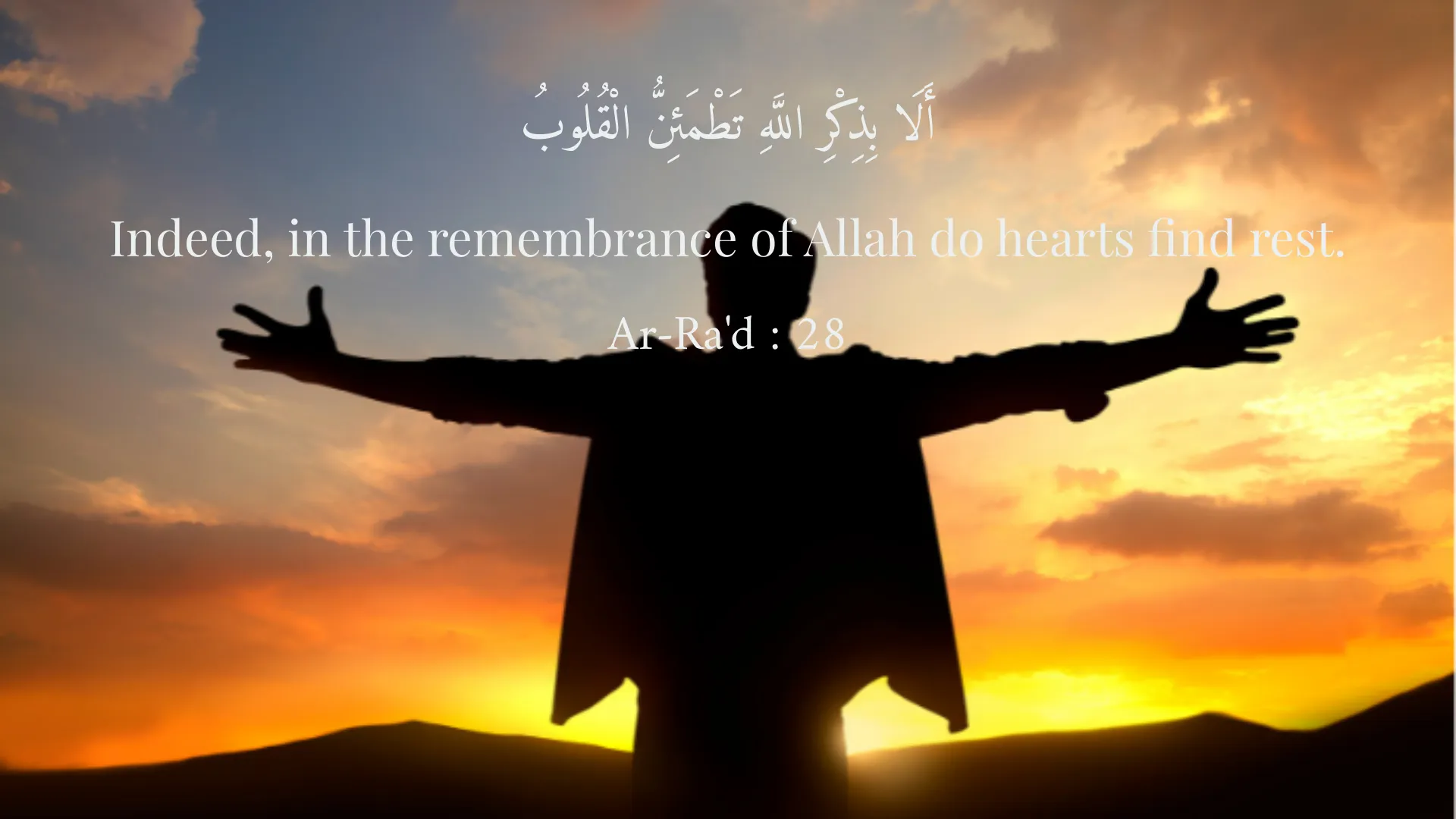Quranic Answer

The Holy Quran, revered as the ultimate guide for Muslims, outlines various aspects of life that lead to happiness, fulfillment, and peace. Understanding the concise messages of the Quran can significantly contribute to cultivating a sense of well-being in the lives of believers. Happiness is not merely a fleeting emotion in the Quran; it is portrayed as a fundamental, attainable goal that is closely tied to faith and a deep-rooted connection with Allah. Through its divine messages and teachings, the Quran effectively communicates how individuals can achieve a blessed and joyful life. One of the critical aspects emphasized in the Quran regarding the attainment of happiness involves remembrance of Allah, or Dhikr. In Surah Ar-Ra'd, verse 28, it is beautifully stated, "Verily in the remembrance of Allah do hearts find rest." This verse encapsulates the essence of how a personal relationship with Allah enriches one's soul and offers tranquility amid life's tumultuous challenges. It implies that keeping Allah at the forefront of our thoughts can lead to emotional stability and genuine peace. The act of remembering Allah fosters a sense of awareness of the divine, which serves as a guiding light through the ups and downs of life, reminding believers that they are not alone in their journeys. Moreover, the Quran conveys a reassuring message about life's inevitable challenges. In Surah Ash-Sharh, verse 6, it declares, "With hardship comes ease." This profound statement serves as a reminder that Allah never burdens a soul beyond its capacity and that temporary setbacks are part of the human experience. The value of patience, or Sabr, is accentuated here; it is the virtue that allows individuals to endure challenges while trusting in Allah's wisdom and timing. Understanding this concept liberates one from despair, encouraging optimism and resilience. Recognizing that difficulties are transient and that ease follows hardships may empower individuals to navigate life's storms with a calm and composed demeanor. Aside from the internal dimensions of faith and patience, the Quran also stresses the external relational aspects that contribute to a joyful life. Love, compassion, and responsibility toward fellow beings are integral to experiencing true happiness according to Islamic teachings. In Surah Maryam, verse 96, Allah promises that "those who believe and do righteous deeds will have Allah's love." This verse conveys a powerful message about the reciprocal relationship between faith and positive actions. Acts of kindness, generosity, and support toward others create bonds of love that not only elevate one's social spirit but also fulfill a crucial teaching of Islam, which is to nurture communities anchored in empathy and compassion. The concept of love is multifaceted within the teachings of the Quran. It encompasses love for Allah, love for oneself, love for one's family, and love for humanity at large. Nurturing these relationships through sincere actions fosters a harmonious environment where individuals can thrive. By emphasizing responsibilities towards family, neighbors, and society, the Quran sets a framework where love is translated into concrete actions, leading to collective happiness and societal well-being. Furthermore, the Quran illustrates that true joy and contentment stem from aligning one’s life with divine guidance. The teachings of the Quran encourage believers to pursue righteousness and ethical living. This embodiment of moral values not only earns Allah's love but also nurtures inner peace and external harmony. When individuals lead a life in accordance with divine principles, they build a character that resonates with truthfulness and integrity, which ultimately reflects positively on their emotional state. The principles highlighted in the Quran also inspire believers to focus on gratitude, contentment, and forgiveness. Recognizing the blessings bestowed upon them fosters an attitude of thankfulness. The Quran advises individuals to be appreciative of what they have rather than fixating on what they lack, promoting a sense of contentment and joy. Being grateful enhances a person’s experience of joy—transforming how they perceive the world around them. Forgiveness, too, is emphasized as a means to reconcile relationships and cultivate inner peace. By letting go of grudges and extending compassion towards others, individuals liberate their hearts from the burden of resentment and foster an atmosphere conducive to happiness. The Quran advocates for peace and reconciliation, showcasing that forgiveness is a powerful tool that contributes to personal well-being and social harmony. In conclusion, the teachings of the Holy Quran present a comprehensive framework for leading a joyful life. The focus on remembrance of Allah, the importance of patience during hardship, and the emphasis on love and responsibility toward others are fundamental aspects highlighted in this holy text. Achieving a state of happiness is not merely about external circumstances but is deeply rooted in the individual’s connection with the divine and their interactions with others. As believers apply these teachings in their lives, they can cultivate an atmosphere of joy, peace, and fulfillment. By fostering a profound bond with Allah and promoting love and compassion towards fellow human beings, individuals can realize the promise of a truly happy life as envisioned in the Holy Quran.
Related Verses
أَلَا بِذِكْرِ اللَّهِ تَطْمَئِنُّ الْقُلُوبُ
Indeed, in the remembrance of Allah do hearts find rest.
Ar-Ra'd : 28
إِنَّ مَعَ الْعُسْرِ يُسْرًا
Verily, with hardship comes ease.
Ash-Sharh : 6
إِنَّ الَّذِينَ آمَنُوا وَعَمِلُوا الصَّالِحَاتِ سَيَجْعَلُ لَهُمُ الرَّحْمَانُ وُدًّا
Indeed, those who have believed and done righteous deeds - the Most Merciful will appoint for them affection.
Maryam : 96
Short Story
Once upon a time, in a small village, there lived a man named Saeed. He was always worried about how he could have a happy and blissful life. One day, he approached a wise old man and asked him. The old man smiled and said, 'Dear Saeed, a happy life lies close to Allah. By remembering Him and showing kindness to others, you can find peace and joy in your life.' From that day on, Saeed started to remember God and improve his relationships with others. After a while, he noticed he was happier than ever.